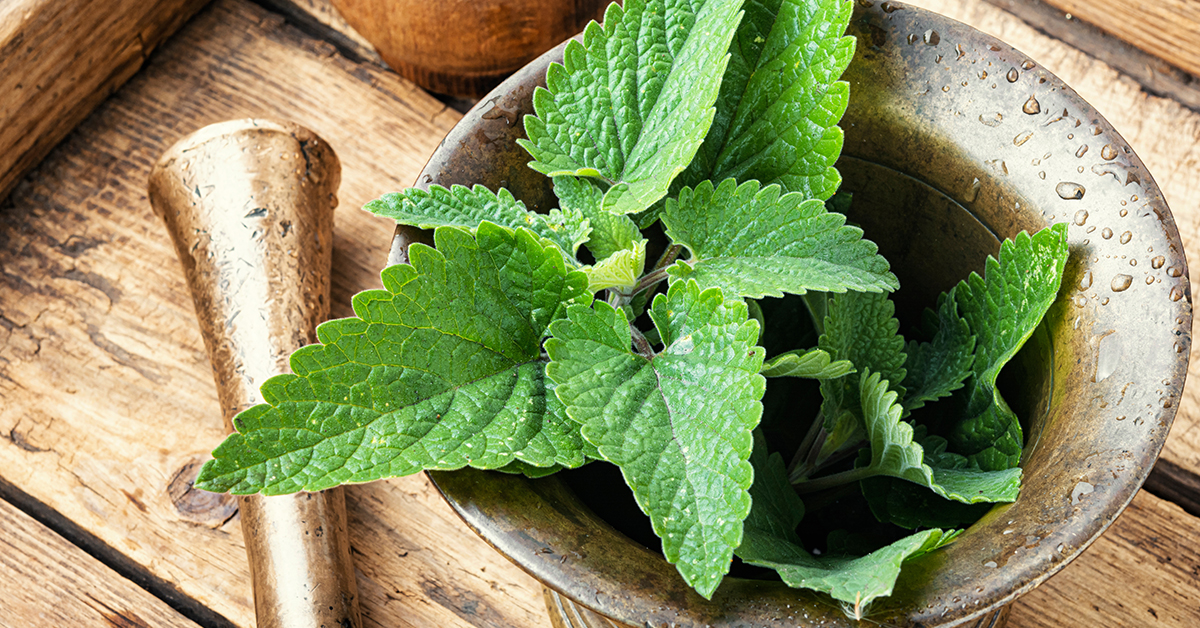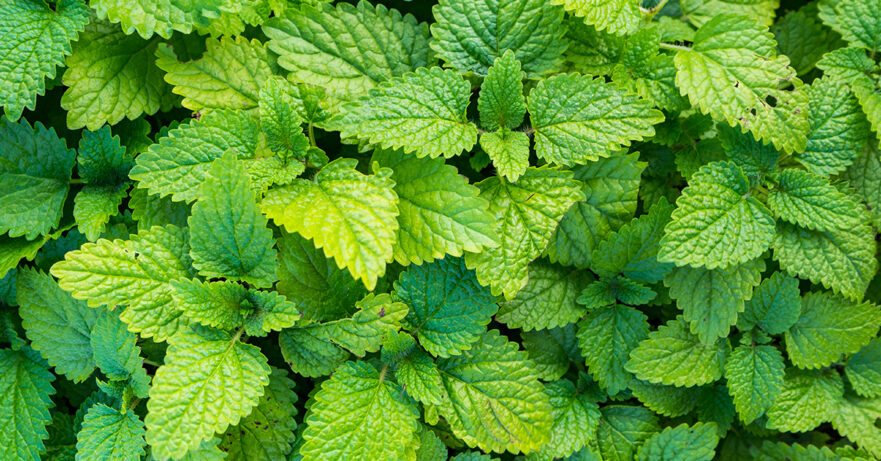In this monograph about lemon balm:
📖 Introduction | 🌱 Botanical Description | 📜 Traditional Uses | 🔍 Phytochemistry | ✨ Applications and Uses | 🛡️ Safety Profile
📖 Introduction
Lemon balm (Melissa officinalis) is a perennial herb prized in herbal medicine for its calming, digestive, and antiviral properties.
Known for its lemon-scented leaves, lemon balm has a longstanding history of use across many cultures for enhancing mood, aiding sleep, and supporting overall well-being.
| English Name | Lemon balm |
| Latin Name | Melissa officinalis |
| Parts Used | Aerial parts |
| Traditional Uses | Alleviating stress and anxiety, promoting restful sleep, supporting digestive health, improving concentration and mental clarity |
| Herbal Actions | Nervine, antidepressant, antispasmodic, carminative, antiviral |
🌱 Botanical Description
Scientific Classification
Melissa officinalis is part of the Lamiaceae (mint) family.
Physical Characteristics
Lemon balm features broad, heart-shaped, lemon-scented leaves with small white or pale pink flowers.
Natural Habitat and Cultivation Details
Originating from Southern Europe, lemon balm now grows in temperate climates worldwide. It prefers well-drained soil and partial shade to full sun and flourishes in both wild and cultivated settings.
📜 Traditional Uses

🔍 Phytochemistry (Active Constituents)
Lemon balm contains several active constituents that contribute to its medicinal properties:
- Rosmarinic acid Known for its potent antioxidant and anti-inflammatory effects, supporting overall immune health.
- Terpenes: Including citronellal and geraniol, which contribute to their antiviral and antimicrobial activities.
- Flavonoids: These compounds offer additional antioxidant and anti-inflammatory benefits, enhancing its soothing effects on the nervous system.
✨ Applications and Uses
Lemon balm is extensively used in herbal medicine for:
- Relaxation and sleep support: Its mild sedative properties are known to help reduce anxiety and promote sleep, making it beneficial for those with insomnia.
- Digestive aid: The herb’s antispasmodic effect is known to relieve symptoms of indigestion, such as bloating and gas.
- Cognitive enhancement: Lemon balm is recognized for its ability improve memory and cognitive function, particularly in reducing agitation in individuals with mild to moderate cognitive impairment.
The efficacy of lemon balm in these applications is supported by its diverse phytochemical makeup, especially its rich content of rosmarinic acid and terpenes.
🛡️ Safety Profile
Lemon balm is generally considered safe for most people when used in culinary or therapeutic doses.
However, due to its sedative effects, it should be used with caution in combination with other sedative medications.
Pregnant and breastfeeding women should consult a healthcare provider before use.
Lemon balm may interact with thyroid medications due to its potential influence on thyroid activity, thus consultation with a healthcare professional is advised before use by those with thyroid conditions.
📃 Related Posts
🌱 Related Herbs

